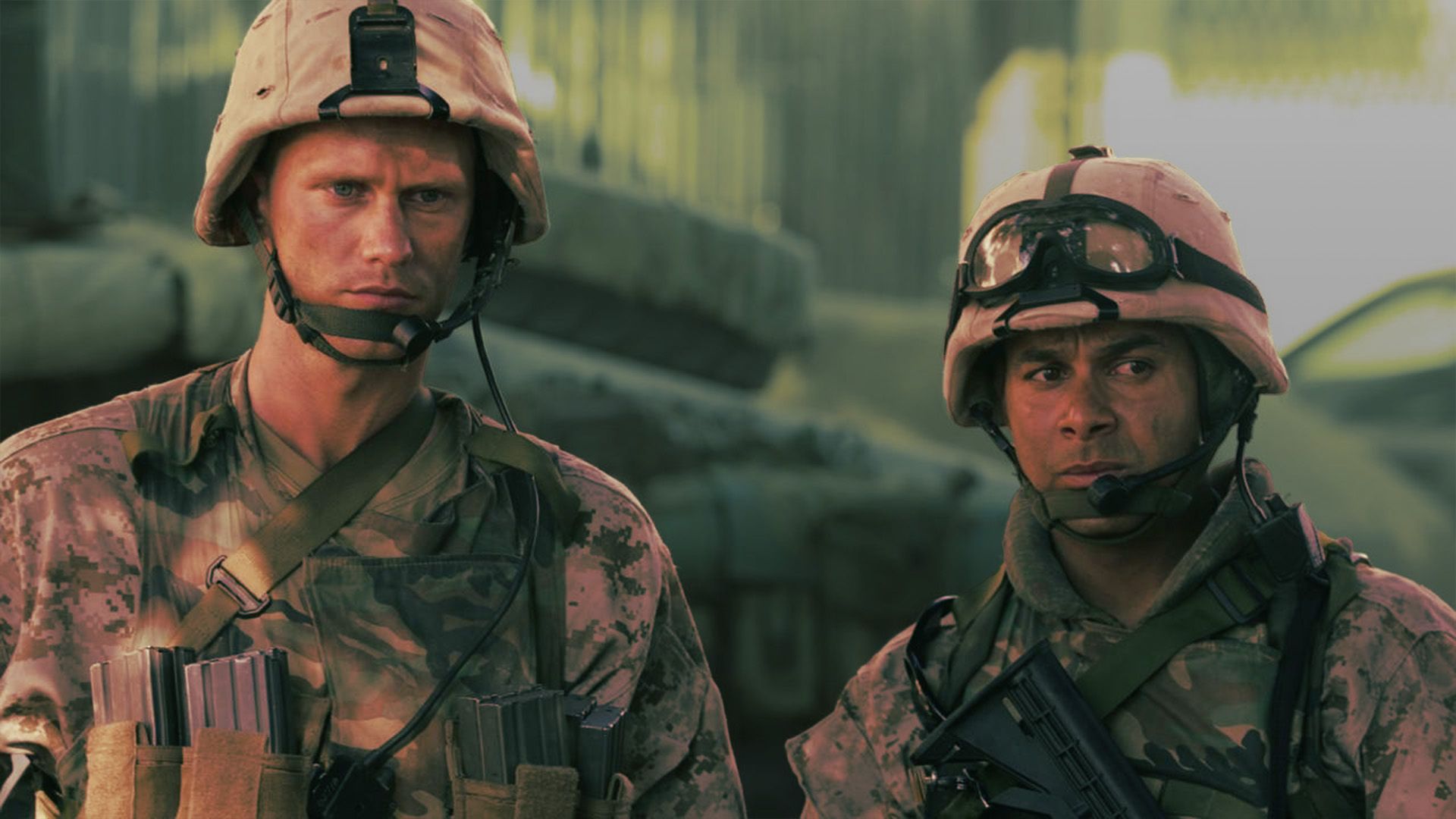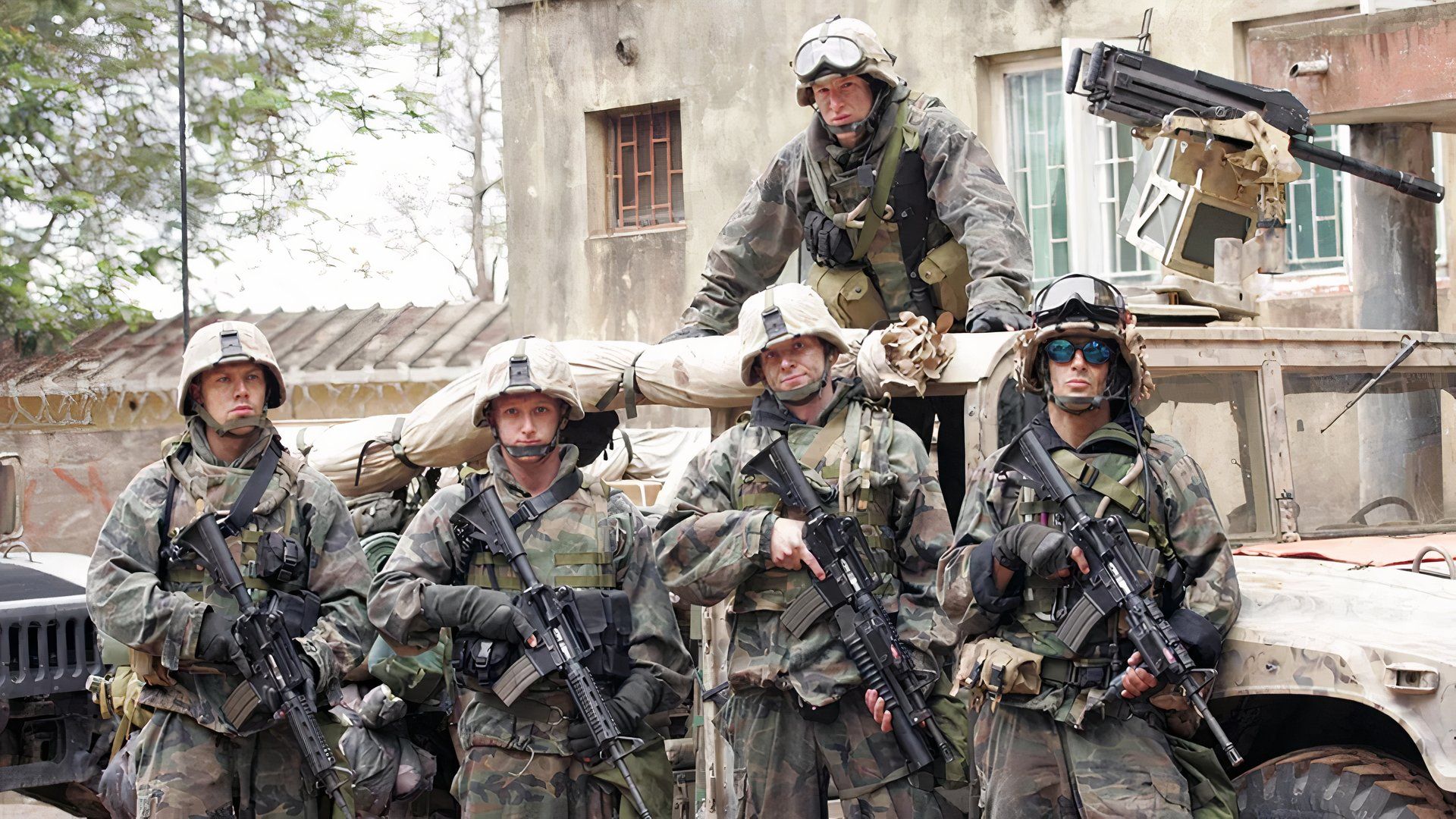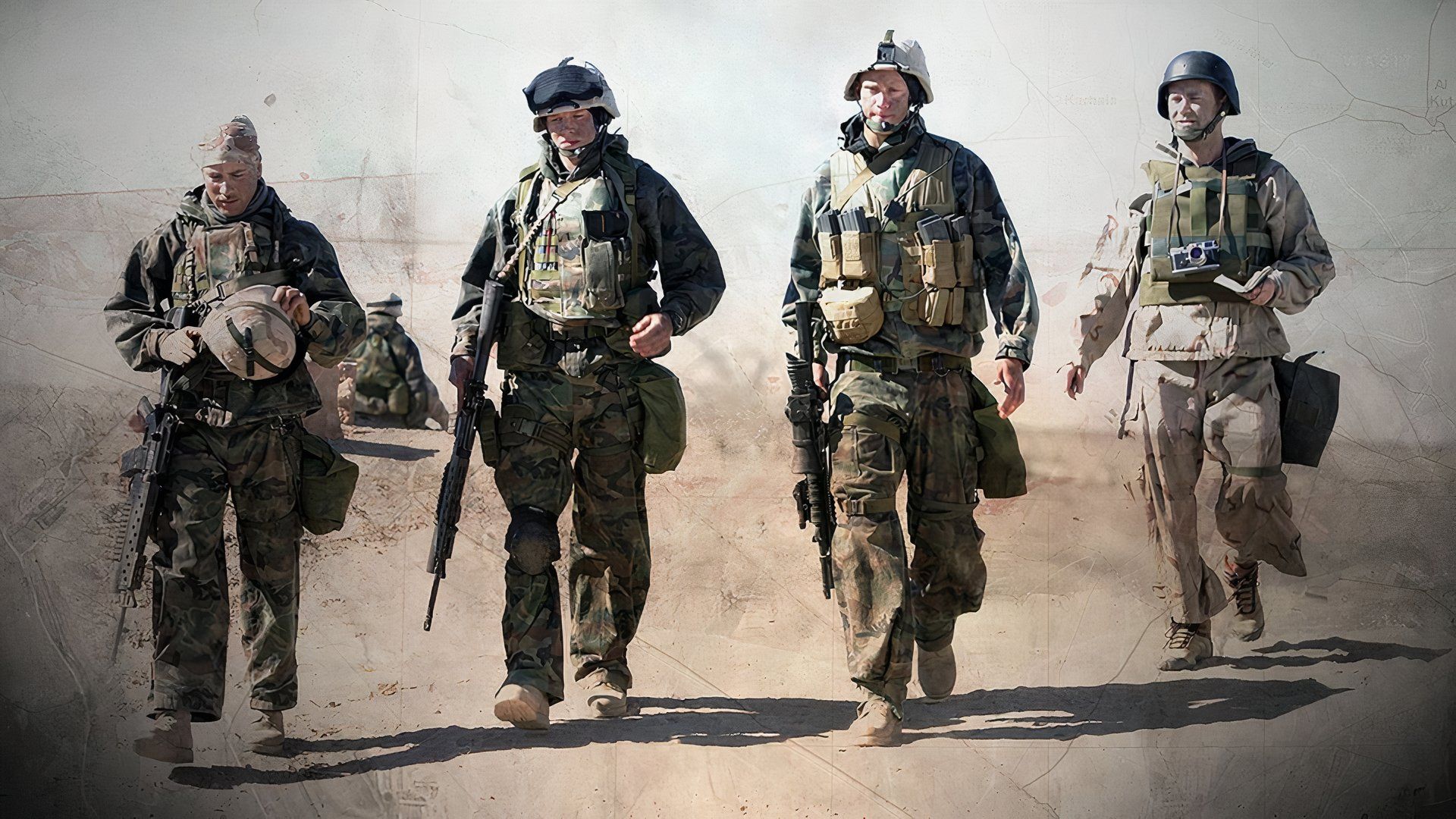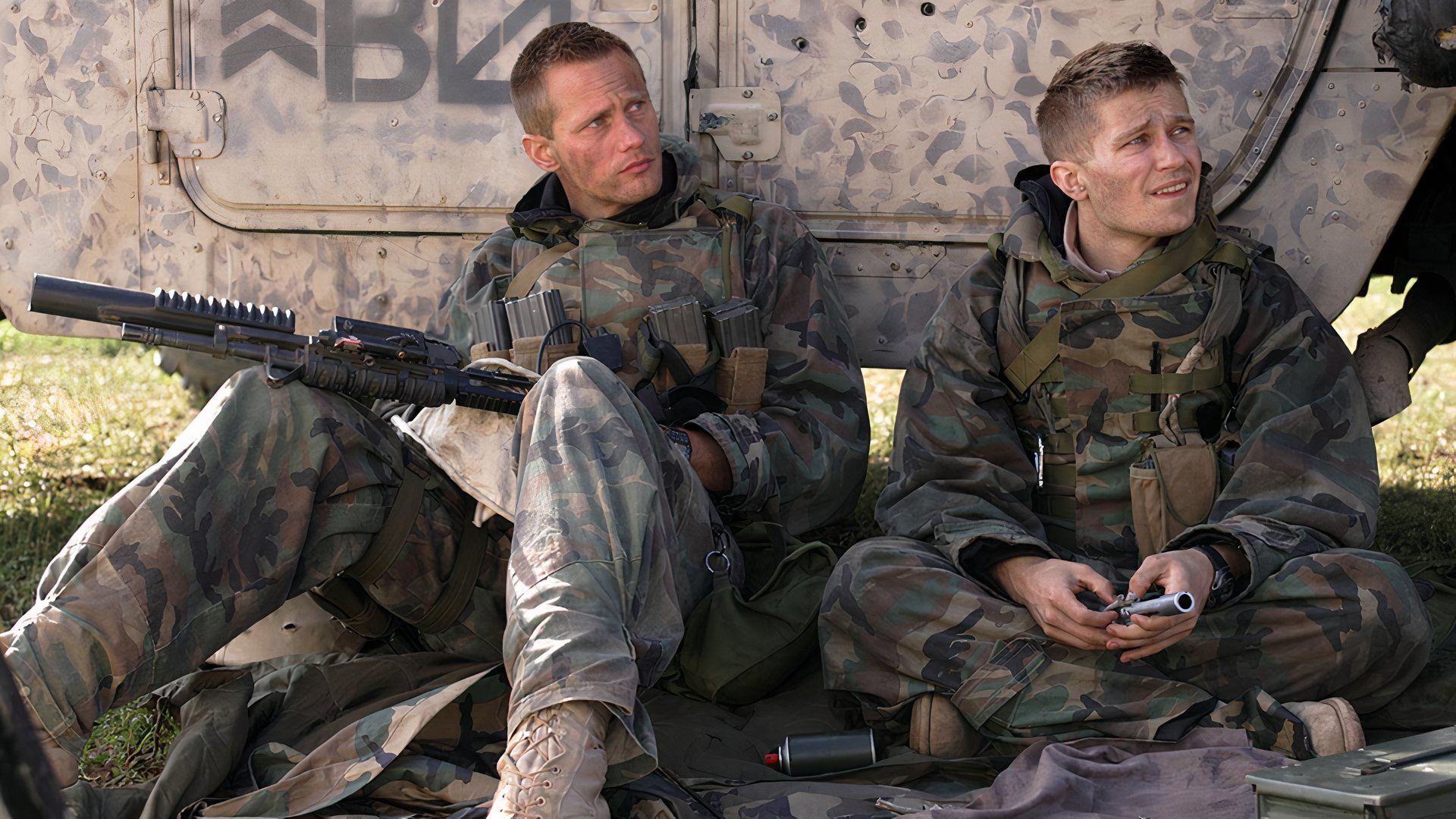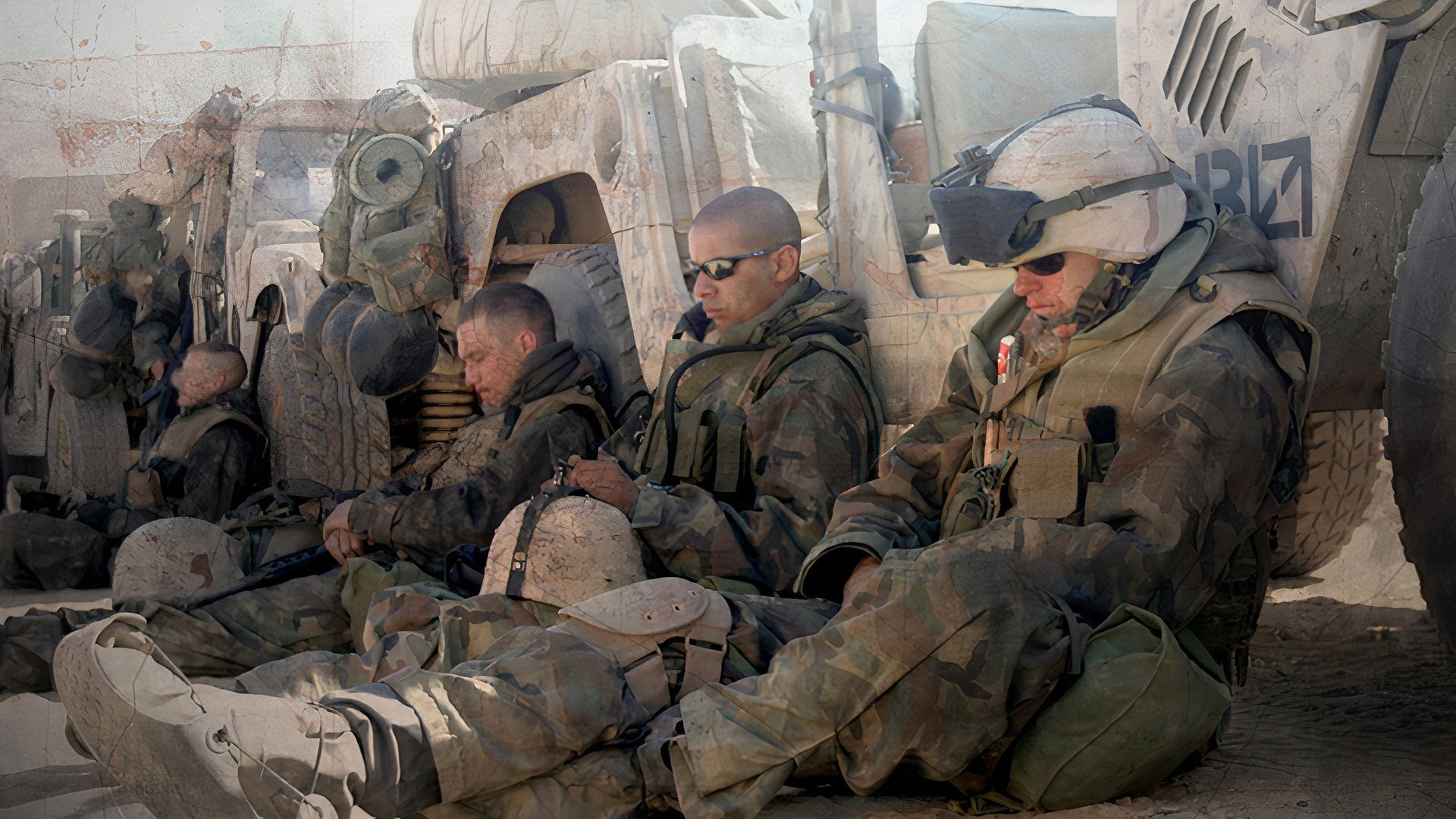Quick Links
Released in July 2008, Generation Kill is one of HBO's most acclaimed TV miniseries. Adapted by The Wire's David Simon and Ed Burns from the Evan Wright book of the same name, the shockingly realistic war drama follows U.S. Marines during the 2003 Invasion of Iraq. The expensive production emphasized gritty realism and visceral immersion as a means of putting viewers into the boots of soldiers on the ground in Iraq following the events of 9/11. As a result, the harrowing war drama stunned viewers to the core during its initial run and left a numbing effect for years to come.
Despite lasting just seven weeks on the air, Generation Kill won three Primetime Emmy Awards and launched the careers of several actors, including Alexander Skarsgard. While it's possible the miniseries would have continued beyond seven episodes, several factors contributed to Generation Kill's abrupt ending, including the cost of production, the poor timing of the Afghanistan War, and perhaps most glaring, the punishing realism of front-line battle. While Generation Kill is a must-see for war aficionados and HBO fans alike, here's why the show ended after seven episodes.
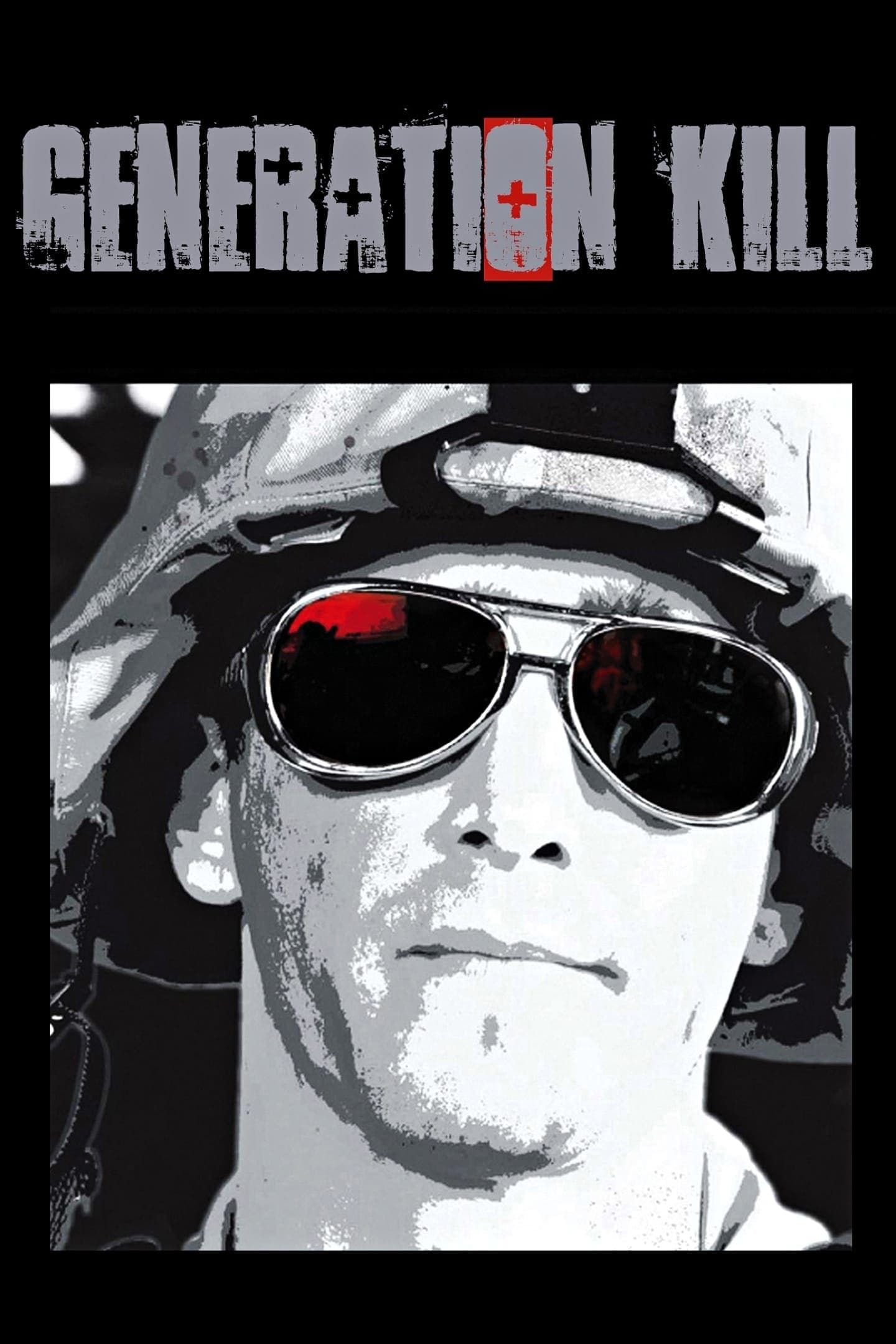
Generation Kill (2008)
- Release Date
- August 24, 2008
- Cast
- Alexander Skarsgard , James Ransone , Lee Tergesen , Jon Huertas , Stark Sands , Billy Lush , Jonah Lotan , Wilson Bethel , Pawel Szajda , Marc Menchaca , Rey Valentin , Kellan Lutz , Mike Figueroa , Josh Barrett
- Main Genre
- Drama
- Seasons
- 1
- Writers
- David Simon , Ed Burns , Evan Wright
- Streaming Service(s)
- Max
- Directors
- Susanna White , Simon Cellan Jones
What Is Generation Kill About?
Adapted from the 2004 memoir by Evan Wright, Generation Kill chronicles the author's experience as an embedded Rolling Stone journalist with the U.S. Marines during the 2003 Invasion of Iraq. Wright accompanied the U.S. Marine Corps' First Reconnaissance Battalion and documented his unflinching accounts during his time abroad. At the time, HBO green-lit the all-time great war miniseries based on Wright's memoir and tapped The Wire's David Simon and Ed Burns to adapt the story and write the episodic screenplays.
In addition to co-writing, Simon and Burns were executive producers for Generation Kill and hired Susanna White and Simon Cellan Jones to direct. Meanwhile, the story boasts a sprawling ensemble cast, including 28 main Marines led by First Lieutenant Nathaniel Fick (Stark Sands), Sergeant Antonio Espera (John Huertas), and Staff Sergeant Brad Colbert (Skarsgard). Lee Tergesen portrays author and war correspondent Evan Wright, who receives story credit for his sourcebook.
Real-life Marine Rudy Reyes plays himself in the film, while real-life Marine Eric Kocher portrays Gunnery Sergeant Rich Barrett. Reyes and Kocher also led a six-day Boot Camp to train the actors to prepare to play Marines in the miniseries. The authentic flourishes were meant to foster hyperrealism as the show's main appeal.
The Gritty Realism Was Too Close for Comfort
One of the main reasons Generation Kill lasted only seven episodes relates to the intense realism that was too close for comfort for viewers in 2008. The vivid, hyperrealistic account of the Bravo Company storming Baghdad during Operation Iraqi Freedom shocked viewers to the bone. Only five years had passed since the real event that the show depicted began. Worse yet, the Iraq War was still ongoing when Generation Kill debuted in July 2008.
While the ramifications have been felt long after, the Iraq War officially ended in 2011. As such, the disturbingly graphic miniseries was the first of its kind to depict the horrors of war while the war still raged on. The unflinching realism aimed for by the creators ultimately harmed the future of Generation Kill, even if it was unanimously praised for its authenticity. According to ScreenRant, Generation Kill scored a near-perfect accuracy assessment by real-life Iraq War veteran Jay Dorleus.

10 Best TV Shows About World War I
WWI had major implications on and off the battlefield. The following shows use it either as a backdrop or a central piece of the story.Beyond the unremitting realism that terrified viewers, Generation Kill was also hindered by poor timing. The David Simon miniseries premiered on HBO on July 13, 2008, the same day as the Battle of Wanat in Afghanistan, one of the bloodiest skirmishes for American soldiers in a protracted 20-year war. Between the fatigue of the Iraq War and the exhausting bloodshed of the War in Afghanistan, the timing of Generation Kill hit too close to home when it was released in the summer of 2008. Beyond the jarring violence and real-life war on the periphery, Generation Kill had cost too much to justify its continuation.
Expensive Production Costs
According to The Guardian, Generation Kill cost $56 million to produce seven episodes. At $8 million per episode, the cost of production was too steep to continue Generation Kill beyond seven hours of high-quality television. The budget was allocated to make the show as realistic as possible, filming over a six-month schedule in mid-2007. The production flew the large cast and crew to film epic battle sequences in Mozambique, Nambia, and South Africa. Although the results were universally hailed by critics (86% Rotten Tomatoes score) and most viewers (8.5 IMDb rating), Generation Kill was too expensive to continue making.
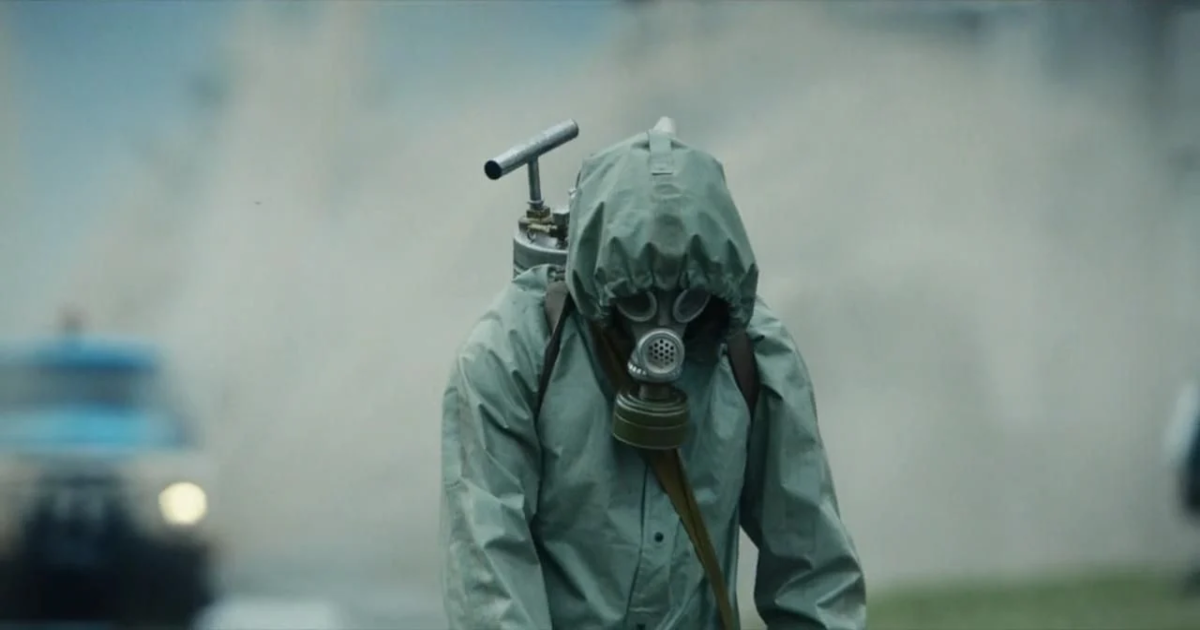
The Best HBO Miniseries of the 2010s
HBO is famous for creating acclaimed and thought-provoking content that captures the attention of audiences across the world, especially miniseries.Coupled with the show's poor timing relative to the real U.S. wars and the brutally violent realism it depicted, Generation Kill aired its final episode on August 24, 2008. Although HBO decided not to continue the show, Generation Kill received several awards and accolades. In addition to winning three Primetime Emmys, the show won the Artois Award for Outstanding Achievement in Casting and a Gracie Allen Award for Best Director (Susanna White). A red carpet event was held for real U.S. Marines at Camp Pendleton, where they reacted favorably to a screening of Generation Kill.
What the Creators Had to Say About the Cancelation
Several factors contributed to HBO's decision to end Generation Kill seven weeks after it debuted. The realistically violent content was too close to the real U.S. wars in Iraq and Afghanistan, with the proximity turning viewers off. As such, even those who tuned in for the first episode or two of the stellar war TV series couldn't possibly understand the aim Simon and Bruns were going for. According to Simon (via Live Journal)
"A lot of people thought Generation Kill was one thing after they watched one or two hours. You don’t get what Generation Kill is in totality until you get to the end of the seventh hour. Of all the things I’ve worked on, Generation Kill is probably the best executed project I’ve ever been involved with, in terms of trying to convey a specific reality — a specific theme — and achieving that."
Between the unnerving realism, real-life U.S. wars, lack of early viewership, and cost of production, Generation Kill never made it past seven episodes. Whether officially canceled or mutually ended, Generation Kill remains one of the best and most realistic war miniseries ever produced.
Generation Kill is available to stream on Hulu & Max.

